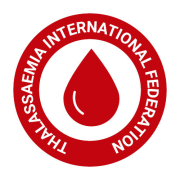Previous Next The Thalassaemia International Federation (TIF) is a non-profit, non-governmental organisation founded in 1986 by a small group of patients and parents representing mainly National Thalassaemia Associations in Cyprus, Greece, UK, USA and Italy. TIF’s vision is to ensure equal access to quality health care for every patient with thalassaemia and other haemoglobin disorders across the world.
TIF’s mission is to promote and implement national control programmes for the prevention and treatment of thalassaemia and other haemoglobin based on four components disorders in every affected country.
The work of the Federation in addressing effectively the needs of the world thalassaemia family & achieving its mission has been based on 5 pillars:
- The establishment of new and promotion of existing National Thalassaemia Patient/Parents Associations, across the world, aiming to transform patients and parents into knowledgeable, productive and equal partners in the fight to achieve progress through education and building their capacities and competences.
- The development and continuous updating and upgrading of an Educational Programme, based on four components:
- organisation of educational events in the course of delegation visits;
- preparation, publication, translation and distribution of educational/awareness-raising/community material;
- promotion of academic courses/fellowship preceptorships.
- promotion of academic courses/fellowship preceptorships.
- Collaborations/Networks/Partnerships with National Health Authorities and other relevant health-related institutions or medical/scientific associations or other disease-specific other than thalassaemia, at the national, European and international level.
- The undertaking of, or contribution to Projects that aim to further improve existing policies or develop innovative ones, as well as expressing its position through the development and promotion of position papers on critical issues and topics relevant to the quality of health, other care, life and safety of the patients.
- Supporting and contributing to Research and scientific programmes for the further improvement of existing and the development of new treatment procedures, and aiming towards the final cure.

